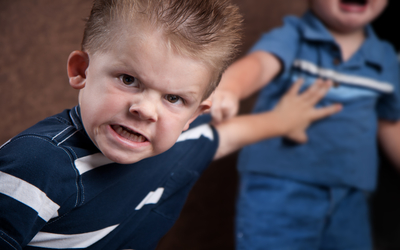Could Your Stroppy Child Have a Behavioural Disorder?
Oppositional Defiant Disorder (more common with boys)
- Getting easily angered frustrated
- Instant tempet elevations
- Consciously trying to annoy others
- Frequent arguments with parents
- Rejection of orders
- Refusal to obey conventional rules
- Agression towards other people and animals
- Attempts to bully younger children
- Physical fights
- Using small things as weapons
- Frequent lying
- Attraction to drugs, alcohol and cigarettes
- Attempts to run away
- Stealing
Attention Deficit Hyperactivity Disorder
- Difficulty concentrating
- Frequent forgetfulness
- Not finishing tasks
- Restlessness
- Frequent fidgeting
- Continuous talking but not listening
If your child does exhibit some of the above behaviours, there are things you can do as a family to help. First, look at the way the family behaves. Your child is a sponge, and will often soak up the behaviours of parents and siblings. Always communicate about why you behave the way you do, and make sure to remember that you’re setting an example. Remember, when dealing with your child it’s vital that you stay calm, as getting angry will often cause your child to become angrier.
You can also employ various techniques when conversing with your child, so that he or she knows the difference between good and bad behaviour. You can offer rewards for positive behaviour, or limit your child’s privileges when he or she does something wrong. However, when offering rewards, steer clear of sugary treats as these can have a detrimental impact on your child’s behaviour. For more information and support, consult a trained psychologist who can offer more ideas for improving your child’s behaviour.

Comments are closed.